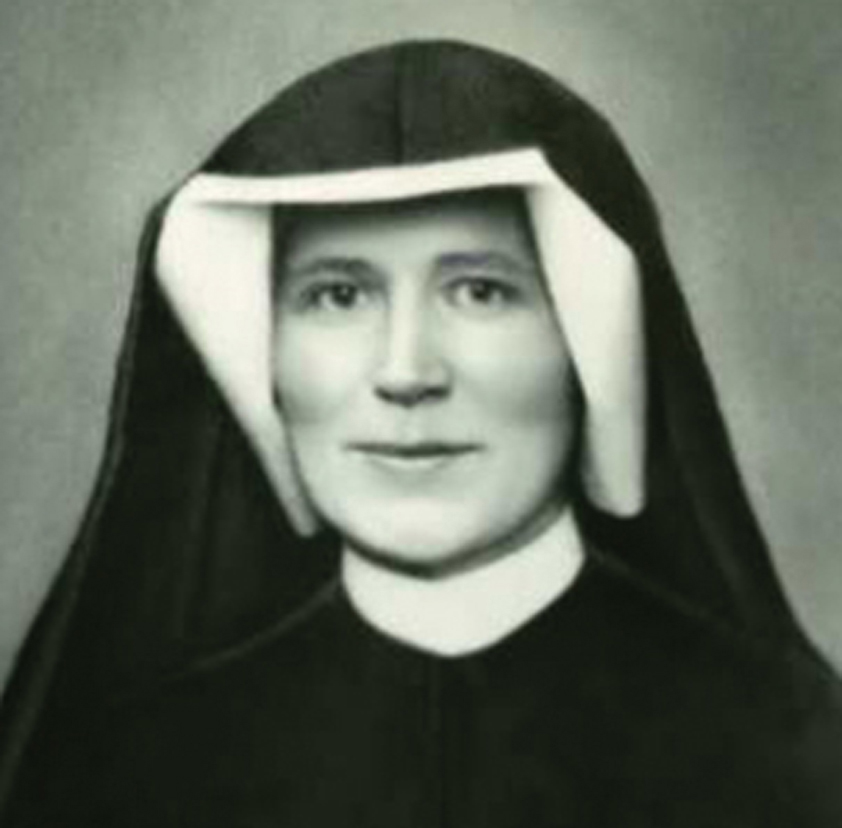[featured-image single_newwindow=”false”]
This Sunday, October 5th, the Church celebrates the feast day of Saint Faustina Kowalska. She was a saint dearly beloved by John Paul II and one which he deliberately chose to be the first saint of the new millennium. It was both her Christian witness and the profound message she received from God that he wanted the world to know and love.
The third of ten children, Helena Kowalska was born in 1905 to a poor peasant family and felt God’s call to religious life at an early age. At 19 she received a vision that urged her to go to Warsaw and join a convent. She was turned down several times because of her poverty, but eventually was allowed to join the Congregation of the Sisters of Our Lady of Mercy (Zgromadzenie Sióstr Matki Bożej Miłosierdzia). Helena recieved her habit on April 30, 1926 and took the name of Sister Maria Faustina of the Blessed Sacrament. She took her first vows in 1928 and lived a short life, dying a mere ten years later at age 33.
Saint Faustina led a simple life as a religious sister, but not too long after she took vows, Faustina started receiving visions of Jesus and had regular conversations with him that she wrote down in her famous Diary. In particular, Jesus appeared to her as the “King of Divine Mercy” and stressed that “Humanity will not find peace until it turns trustfully to divine mercy” (Diary, p. 132).
Among the components of God’s divine mercy that we must turn to is His deep and abiding love for us and our sufferings. Saint Faustina felt this in her own heart and wrote in her Diary:
“I feel tremendous pain when I see the sufferings of my neighbors. All my neighbors’ sufferings reverberate in my own heart; I carry their anguish in my heart in such a way that it even physically destroys me. I would like all their sorrows to fall upon me, in order to relieve my neighbour” (Diary, p. 365).
John Paul II commented on this passage, saying:
“[T]his is the degree of compassion to which love leads, when it takes the love of God as its measure!
It is this love which must inspire humanity today, if it is to face the crisis of the meaning of life, the challenges of the most diverse needs and, especially, the duty to defend the dignity of every human person. Thus the message of divine mercy is also implicitly a message about the value of every human being. Each person is precious in God’s eyes; Christ gave his life for each one; to everyone the Father gives his Spirit and offers intimacy.” (Homily during the Canonization)
John Paul II saw the importance of this message and desired that it would not be forgotten. He stated during her canonization, “by this act I intend today to pass this message on to the new millennium. I pass it on to all people, so that they will learn to know ever better the true face of God and the true face of their brethren” (Homily during the Canonization).
He concluded his homily with a prayer to Saint Faustina, which should be ours today as we go forth to be witnesses of Chirst’s divine mercy:
And you, Faustina, a gift of God to our time, a gift from the land of Poland to the whole Church, obtain for us an awareness of the depth of divine mercy; help us to have a living experience of it and to bear witness to it among our brothers and sisters. May your message of light and hope spread throughout the world, spurring sinners to conversion, calming rivalries and hatred and opening individuals and nations to the practice of brotherhood. Today, fixing our gaze with you on the face of the risen Christ, let us make our own your prayer of trusting abandonment and say with firm hope: Christ Jesus, I trust in you! Jezu, ufam tobie!

